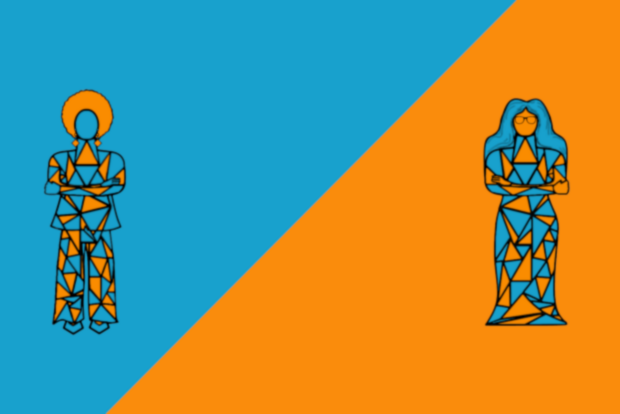‘Be your own kind of leader’: Old leadership models shouldn’t hold female civil servants back

While many countries have made progress towards gender parity in senior roles in the civil service, there is still a long way to go. Global Government Forum research published in November 2022 revealed that fewer than one in three senior civil servants across the governments of G20 countries are women.
There are many intersecting reasons for this, from workplace culture and unconscious bias to the challenges of balancing caregiving with professional responsibilities. Other factors include issues such as self-confidence and perceptions about what leadership looks like.
A Global Government Forum training course has been specifically designed to address the issues affecting women in the civil service who wish to progress up the career ladder.
“Very early on, I started to notice actually all the models and all the old paradigms for leadership are built around men,” says Meena Karawadhra, who runs the Women into Leadership seminars. For example, she found that most leadership books that are commonly quoted from and recommended are written by men.
“This in itself is a problem as we use our own perceptions when we view the world and build our mental maps of the world and how we navigate them,” she comments. “The danger of block thinking creeps in when we do not seek diversity of thoughts and perspectives.”
“I felt like there wasn’t a lot for me,” adds Karawadhra, who has a background as a civil servant and is a qualified coach.
These traditional models typically lacked insight into areas such as inclusion and psychological safety, she explains: “They were treated as a bolt-on so I started to think about the areas and the barriers that weren’t being talked about.”
Challenging assumptions
Delegates attending the training sessions often share personal stories that highlight the pervasive challenges women face – sometimes due to the intersectionality of, for example, race and gender – such as instances of being mistaken for support staff rather than recognised as leaders. They also discuss the stress of having to ‘code-switch’ to fit into dominant cultural norms, which can lead to feelings of isolation and alienation in the workplace.
The Women into Leadership seminars tackle these issues head-on, delving into data, neuroscience and lived experience to unpack issues such as unconscious bias, limiting beliefs, and stereotypes. “We encourage women to define their leadership style on their terms,” says Karawadhra.
The training looks at challenging assumptions about what assertiveness and strong leadership looks like.
“As women we’re caught in a double bind,” Karawadhra observes. When women speak up or push for promotion, they can be viewed as aggressive, while those who show emotion or a more compassionate approach may be deemed ‘too nice’ for leadership.
“We need to challenge this thinking,” she adds.
Design your leadership future
The seminars support attendees to create a leadership statement and define who they want to be as a leader and the type of impact that they want to have. Delegates often express the desire to be authentic and to show integrity, for example.
“We talk about psychological safety and how to empower other people, and leading as a verb rather than a title,” Karawadhra continues. “And we explore those kinds of behaviours.”
The course also looks at leadership barriers and challenges. “And we interrogate how many of those are real and how many are limiting terms of our own beliefs, or limited by the organisation or the structure or the policy,” explains Karawadhra.
Participants are encouraged to map out the career opportunities that are available for them, but also how they can create and seek out more prospects for themselves through networking, mentorship and more.
“We look at things like influencing and persuading, and communication skills, and areas such as presenting and being visible,” says Karawadhra. “It’s about showing up as the leader that you’re meant to be. You don’t need a formal title: you can still lead and that will pave the way for others. And remember that if it’s possible for others, it’s possible for you.”
To truly make senior leadership roles accessible, structural changes are essential – from tackling sexism to ensuring caregiving responsibilities don’t hinder career progression. Meanwhile, women can take proactive steps to carve out their career paths and leadership styles, drawing strength from the knowledge that they are part of a wider community.
As Karawadhra points out: The overwhelming feedback from delegates is: ‘Wow, I realise I’m not alone’. They leave empowered, ready to make a difference.”
The next Women into Leadership seminars, which are two stand-alone but complementary sessions, take place on Thursday 24 October and Thursday 7 November.
Global Government Forum has also set up the Global Government Women’s Network, a free community for women in civil and public services around the world, who can advise and support each other as they navigate their careers. A monthly newsletter rounds up exclusive news, opinion, analysis and events that are relevant for women in the civil service.





















